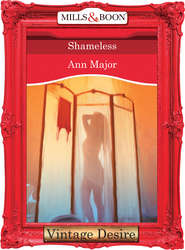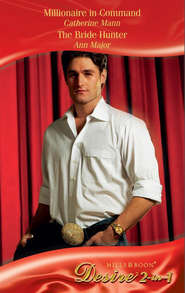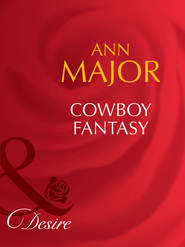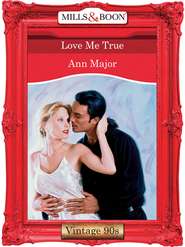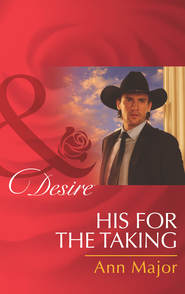По всем вопросам обращайтесь на: info@litportal.ru
(©) 2003-2024.
✖
The Girl with the Golden Spurs
Автор
Год написания книги
2018
Настройки чтения
Размер шрифта
Высота строк
Поля
“The hell he did, Daddy. The hell he did. You were drunk because he got you drunk. Caesar Kemble knew exactly what he was doing. What kind of fool plays poker drunk?”
“I’m not like you, boy. I play poker for fun.” But his old man’s explanation didn’t mollify Cole.
“Black Oaks wasn’t just yours. You didn’t have the right to gamble it away. It was mine and Shanghai’s.”
“Well, it’s gone just the same, boy. You can’t rewrite history. You’re a loser, born to a loser, brother of a loser. History is always written by the winners.”
“I swear—if it’s the last thing I ever do, I’ll get Black Oaks back—all of it.”
“You’ll get yourself killed if you mess with Caesar Kemble. That’s what you’ll do. My father was a hothead like you and he went over to have it out with the Kembles and vanished into thin air. Don’t get yourself murdered, boy, or run off, like Shanghai did.”
“As if you care—”
His easygoing daddy hadn’t cared much about anything other than partying and getting drunk.
With his Stetson low over his dark brow and longish black hair, Cole followed a well-worn dirt pathway through sandy pastures choked by huisache, ebony and mesquite. Dr. Pepper trotted for at least a mile before Cole’s heart quickened when he saw the billowing dust from the herd rising above a stand of low trees like yellow smoke to dirty the sky.
The vaqueros and Kemble’s sons, who worked for the Golden Spurs, had been gathering the herd for several days in the dense thickets that had once belonged to the Knights. Rich as he was, Caesar, who like Cole, loved cowboying more than he loved anything—including cheating at cards—would be out there with his men and sons. Cole hoped to catch him alone in some deep and thorny thicket and have it out with him once and for all.
Yes, sirree, that’s just what he hoped until he saw Lizzy Kemble through the dense brush. Somehow the sight of the slim, uncertain girl on the tall black gelding struggling to keep up with the vaqueros and her younger, more able brothers, cousins and sister stopped him cold.
Lizzy was fair-skinned and didn’t look like the rest of her family, who were a big-boned, tanned, muscular bunch—a bullying bunch, who thought they were kings, who lorded it over everybody else in the four counties their ranch covered.
The spirited horse was too much for her, and she knew it. Her spine was stiff with fear. Anybody could see that. Her hands even shook. She was covered with dirt from head to toe, and her hat was flat as a pancake on one side, which meant she’d already taken a tumble or two.
She might have seemed laughable to him if her eyes weren’t so big and her pretty, heart-shaped face so white. She looked scared to death and vulnerable, too. Sensing her fear, the gelding was stamping the ground edgily, just itching for trouble.
Cole shook his head, ashamed for the girl and yet worried about her, too. What the hell was wrong with him? He should be glad Caesar Kemble’s teenage daughter was such a miserable failure as a cowgirl.
He had a mission. He should forget her, but Cole couldn’t stop watching her, his gaze fixing on her cute butt in those skintight jeans and then on the long, platinum, mud-caked braid that swung down her back.
Not bad for jailbait.
His former glimpses of her in town hadn’t done her justice. She’d grown up some since then, gotten herself a woman’s soft, curvaceous body and a woman’s vulnerability that appealed to him much as he would have preferred to despise everything about her. It didn’t matter that she was a Kemble, nor that the Kembles had been swindling the Knights for more than a hundred years. Something about her big eyes made him feel powerful and want to protect her.
He forgot Caesar and concentrated on the girl, who didn’t seem like she fit with her clan at all. She was Caesar’s favorite, and despite the fact she seemed the least suited to ranch life, the bastard wanted to make her his heir. All of a sudden Cole’s quest for revenge looked like it might take a much sweeter path than the one he’d originally intended.
But then that’s how life is. You think you’re fixed on where you’re going and how you’ll get there—then you come to a tempting fork in the road that shows you a much sweeter path.
Lizzy Kemble, who was seventeen, had more important things to do than ride a horse all day long in this godforsaken, hot, thorny country—even if it was her family’s immense ranch. And not on just any horse—Pájaro!
Why had Daddy insisted she could ride Pájaro? The horse had a bad reputation. Why did Daddy always have to challenge her?
“Challenges build character, girl.”
Daddy had the sensitivity of a bulldozer. You’d better do what he said or get out of his way.
Lizzy Kemble was tired, bored, saddle sore, sunburned and scared to death she’d fall off again. Not to mention her imagination was running wild. Every time she got lost in a thicket, she conjured some wild bandit up from Mexico or a drug runner lurking behind every bush just waiting to snatch her.
She wished she was home talking on the phone or reading a book. Why couldn’t she have been born to a normal city family who thought it was natural to hang out in malls?
Indeed she wished she was anywhere except on this monster called Pájaro, getting her fair skin burned to a crisp and scratched up on thorns while she choked on dust and horse flies. Not to mention the bruises on her bottom. Pájaro had thrown her twice already.
She was thinking that Pájaro was a bad name for a horse because it meant bird in Spanish, and the last thing Lizzy, who’d been run away with before, needed was another horse that could fly.
The herd was deep in these horrible thickets made of thorns and cactus. She’d never been on this particular division of the ranch, and she hoped she’d never set foot on it again. Because the land here was too wild and rugged for pens or helicopters, the cattle simply melted into the thickets. Yes, Black Oaks was the only division where a real, old-fashioned roundup was still necessary.
If she had to do this, oh, how she wished she was on her gentle mare, Betsy! But Betsy had gone lame, so here she was trying to stay on this black monster with a wide chest and shiny-muscled back, whose hooves tapped so lightly over the earth, she was gut sure that at any moment he would bolt or fly.
The thicket grew denser and Lizzy strained to find her daddy’s sweat-stained, battered Stetson bobbing above the bawling herd. She saw Uncle B.B. riding tall, as handsome as a prince. Much as Lizzy wished she could give up and go home, she couldn’t. Not with her black-haired brothers, Hawk and Walker, and her sister, Mia, who was a natural born cowgirl if ever there was one, making bets about the exact hour Lizzy would chicken out.
She was used to people regarding her with secretive, speculative glances when they thought she wasn’t watching. She supposed they did so because everybody—her siblings, her aunts and uncles, even her mother—was jealous of her since she was Daddy’s favorite. She hated the way her father’s favoritism caused her problems on every level.
Hawk had said he’d give her an hour in the heat and thorns at best; Mia had said two. When Lizzy had heard Walker and her cousin, Sam—who never laughed at her—laughing, too, she’d made a bet of her own that she’d make it the whole day, even if every second of it was torture. Hawk and Mia had really smirked at her then, which was why she had to stick it out.
She’d show Hawk and Mia and Daddy, too. She’d show everybody, even Mother, who took such pride in Mia—she’d show them, she was a true Kemble if it killed her!
But even though she was Daddy’s favorite, she didn’t feel like a Kemble, and she never had. She often felt she’d been born into the wrong family.
On the Golden Spurs taking part in roundup was a sacred family tradition. Every family member was expected to participate alongside the hands. Even Aunt Nanette flew in from Montana to help work cattle and prepare the camp lunch. Of course, the lunch was always fancier than their normal fare when bossy, stylish Aunt Nanette took charge. She hired half a dozen caterers and had them flown in by private jet from Dallas.
For a hundred and forty years, Kembles had been working this land. They’d endured bandit raids, Union soldiers, drought, the Depression, inheritance taxes and now, in the twenty-first century, family dissention and constant lawsuits. They’d come close to selling out and giving up on the ranch dozens of times. Then oil and gas had been discovered, and there was too much at stake to sell out.
“As long as the family sticks together, the ranch will survive,” was the family motto.
Being a Kemble was like being part of a football team or being a believer in a cult religion, or maybe it was worse, more like the Mafia, because it was family. There was a do-or-die feel to being a Kemble. You were supposed to feel your Kembleness in your bones, to dedicate your entire life to the ranch. Or you were the worst kind of traitor.
So Lizzy felt terrible that she’d been born with this weird feeling that she didn’t belong here and that she lacked the talent to ever be a rancher. This lack in herself filled her with self-doubt. She wanted to please her father by becoming the perfect cowgirl more than anything, but she didn’t think she ever could. As if he sensed this, her father, who was not normally intuitive, had done everything in his power to turn her into a proper Kemble.
“Keep your eye on me, honey,” Daddy had said only this morning when she’d begged to stay home. “And you’ll be fine.”
Easier said than done. Daddy was everywhere at once.
The sun was a fat red ball low against the horizon, but that didn’t mean her daddy would order the cowboying to stop anytime soon. She was tired of the hot rivulets of wet dust running down her face and throat. More than anything she wanted to wash her pale, curly hair so it was no longer matted with dirt and sweat. She’d been in the saddle so long, her butt felt numb and her legs ached. Her throat was dry from all the blowing dust. She probably had chiggers, too.
Nearby a calf escaped, and Hawk waved his cowboy hat and whooped at it. There was laughter and gritos as he and his terrier, Blackie, galloped toward the squealing calf in pursuit. Lizzy jumped forward causing Pájaro’s hooves to tap skittishly.
“Easy, boy,” Lizzy said. Phobic about dogs, Pájaro danced backward. Tensing, Lizzy pulled back on the reins. She hated it when horses did anything except walk in a straight line. She’d been bitten, thrown and kicked too many times to remember, and that wasn’t even counting today.
It had all started on her fifth birthday when she’d begged Daddy for a doll, a beautiful Madame Alexander doll in a gorgeous velvet black dress, but he’d given her a dreadful Arabian mare named Gypsy instead. Daddy had told Lizzy the best way to make friends with the huge, snorting beast was to give her an apple. Only when she’d tiptoed fearfully up to the mare with the crescents of apple in her palm, the brute had snorted and then bitten off the tip of the little finger on Lizzy’s left hand. Mia had grabbed the apple and fed the beast expertly. Not that Daddy had even noticed her doing so.
At the plastic surgeon’s, Lizzy had cried and cried about wanting a doll instead of a biting horse. Not that her daddy had had the least bit of sympathy.
“Don’t be such a big crybaby, Lizzy. She knew you were afraid.”
How do you not be afraid when you are?
Ever since Gypsy, Lizzy had had problem relationships, you might say, with horses and cows—with any large animal, really.






